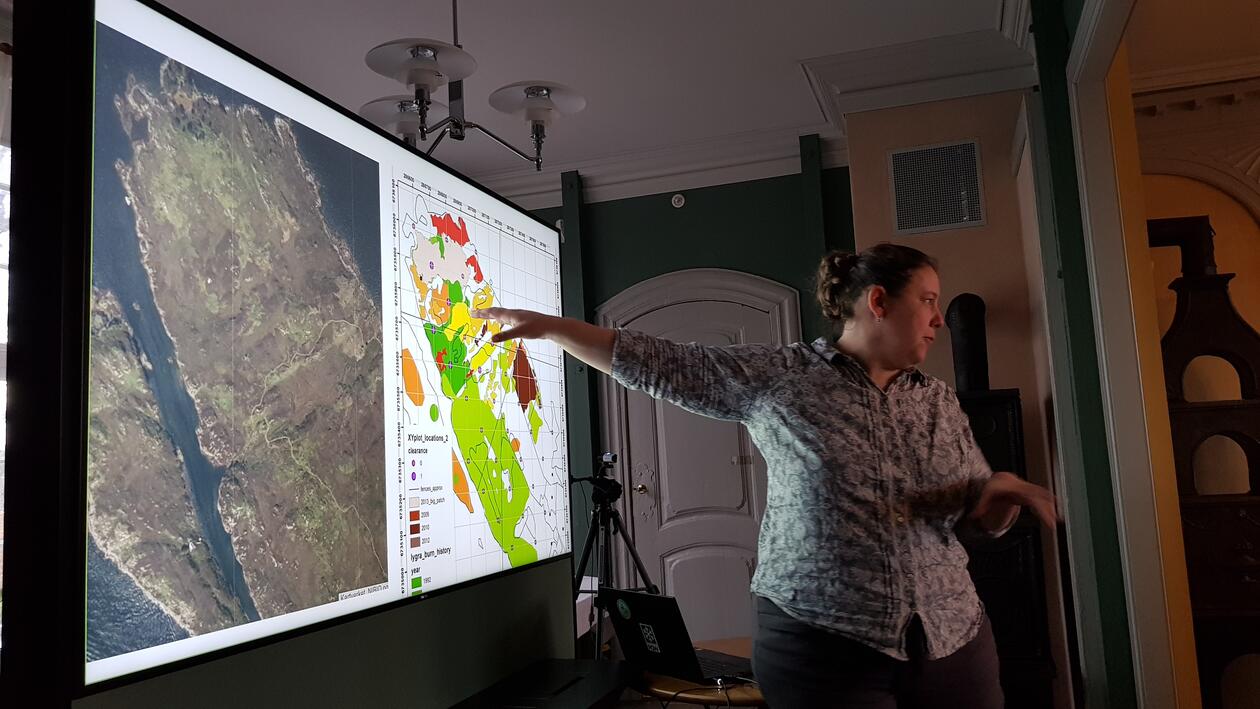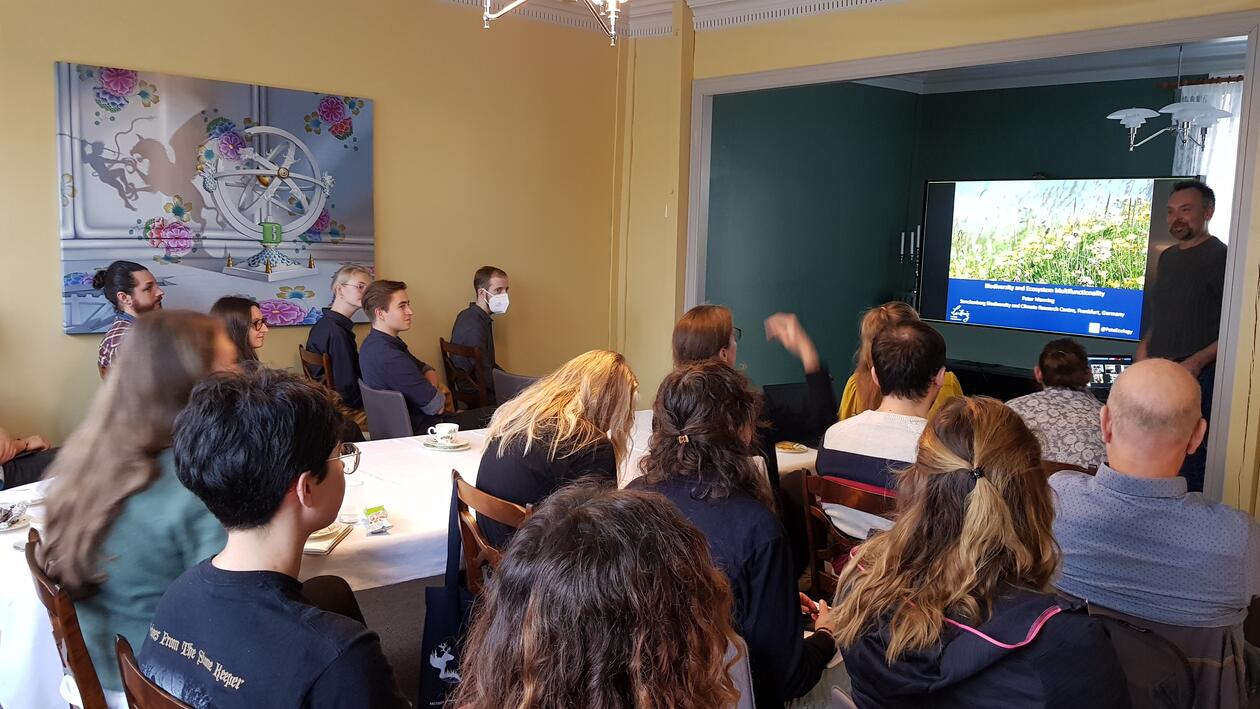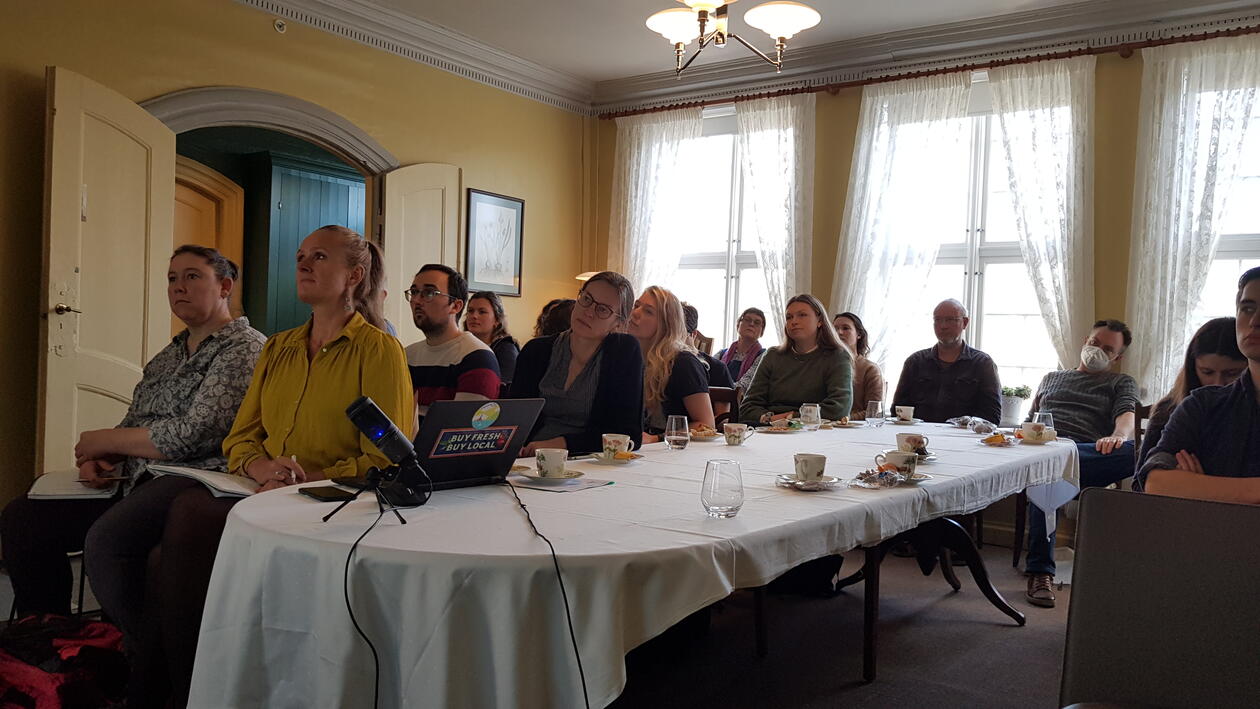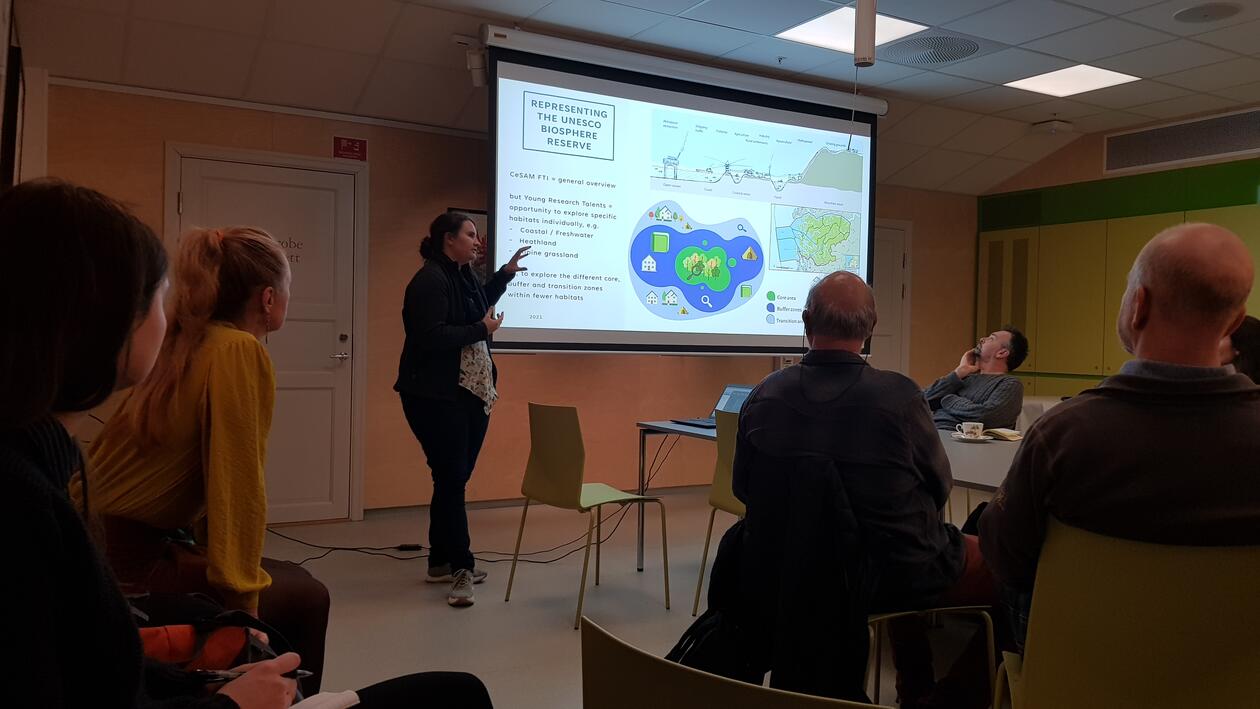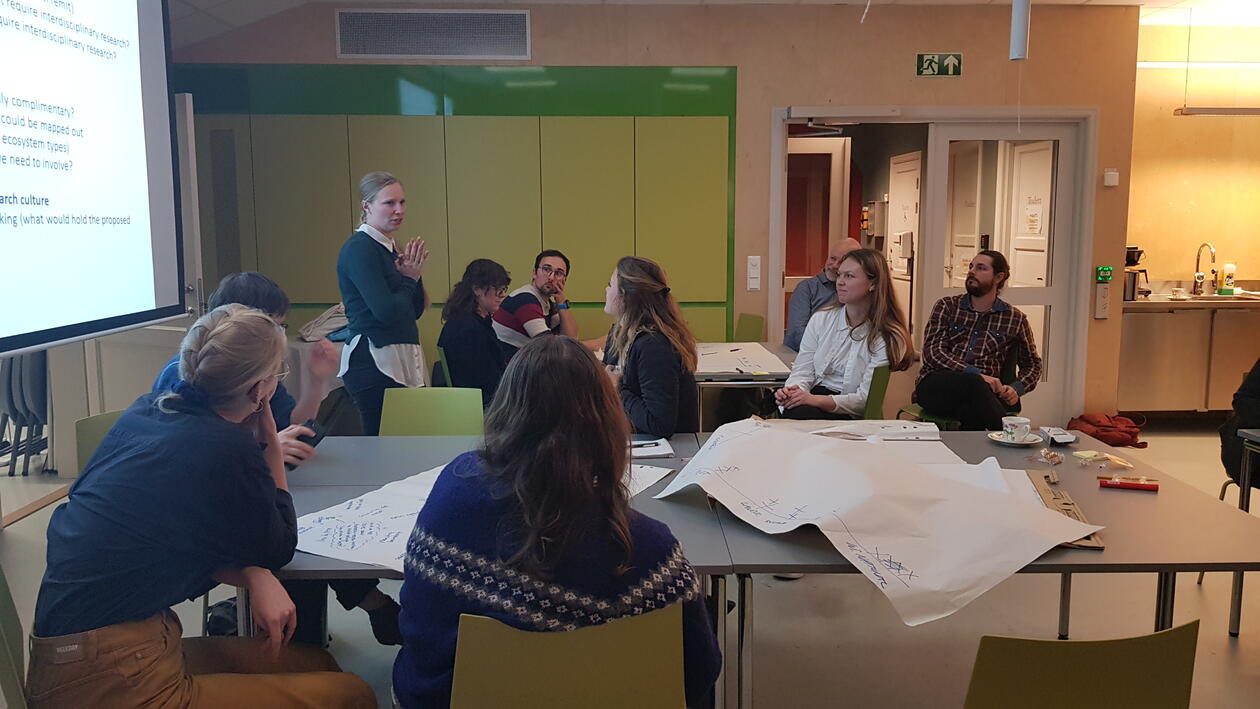CeSAM affiliate meeting November 2021
The second annual meeting of UiB’s Centre for Sustainable Area Management (CeSAM) took place on November 17th 2021, at Lønningen Lystgård in the UiB botanical gardens in Minde.

Hovedinnhold
All CeSAM affiliates were invited, as well as their related early-career researchers. With 33 participants both online and in person, we started the day off with a seminar series in which we got a taste of ongoing research projects related to CeSAM. The topics were plentiful, but common denominators were land use area management, ecological and social-ecological studies, and engagement of stakeholders such as communities, students, and Bergen municipality.
We learned that grazers can act as mediator for climate change in alpine and heath ecosystems, and heard a tale of how biology students mapped the carbon stored in Bergen. We learned about exciting new plans for exploring the historical to modern cultural understanding of ‘socio-nature’ vs. ‘true nature’ and its implications (Gardening The Globe); various ways of actively involving stakeholders in informing our research questions and ensuring that relevant data is accessible and usable for planners and policy makers (EcoMap); and out-of-the-black-box novel deep learning methods for pollen research in food production systems (APPLECORe). There were presentations about community-engaged efforts of mapping ecosystem services in Nordhordland Biosphere Reserve; how both the Botanical Gardens in Minde and the Lyngheisenteret (the Heathland Centre) on Lygra can be a fantastic partner as fieldwork and teaching environments; and Pete Manning introduced himself, his research background and visions for future work in CeSAM. Many of these projects entail collaborations between departments within UiB, as well as external parties such as other universities, research institutes, Bergen Kommune, and the Heathland Centre at Lygra.
After the presentations, we ended the day with a workshop led by Pete Manning. Divided in four groups, we discussed issues related to the main question: 'How do we (in CeSAM) work together to produce socially relevant and academically high impact work?' Specifically, i) What are the questions?; ii) What are our capabilities and what expertise are we missing?; iii) How to create a collaborative research culture?
The interesting discussions that followed took different directions. For some, there was a focus on outreach and communication, both interdisciplinary and outwards of academia; and the question emerged whether academia is especially disadvantaged, or rather well-positioned due to strong place in education, for reaching out to young people and the public in general? To promote more cross-disciplinary interactions within CeSAM, actively engaging Early Career Researchers in CeSAM was suggested, organizing seminar series and/or journal clubs. Further, creating local CeSAM ‘hubs’ across UiB’s faculties would lower the threshold to take part in meetings and events that now seem very BIO-based. Finally, the sum up discussion touched upon the balance between stakeholder involvement and retaining ownership over which research questions we are asking as scientists. Co-creation of research questions was highlighted as a balanced way to develop research agendas informed by, but not dominated by, policy makers and other stakeholders.
